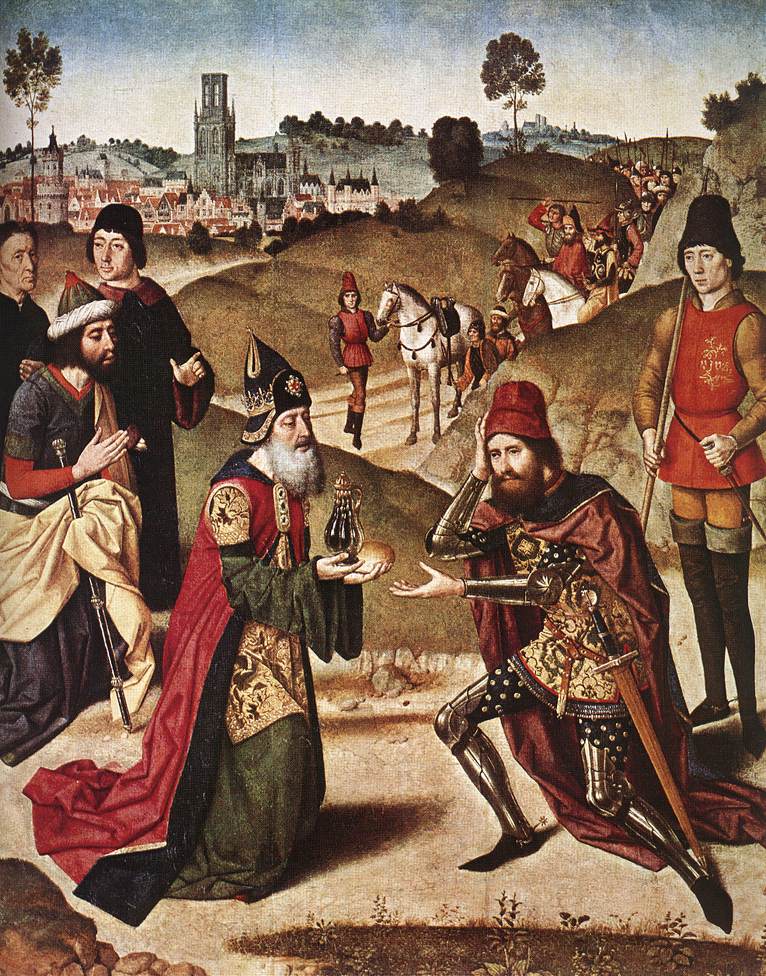The Priesthood Part I: The Establishment of a Priesthood According to the Order of Melchizedek not Aaron!
 I cannot remember the last time that I have heard a sermon about the Priesthood according to Melchizedek. I remember it was one of the key components taught back in the 1970’s during the Jesus Movement to the masses hungering for revival, but I can’t recall it being taught in a conventional church service. Why?
I cannot remember the last time that I have heard a sermon about the Priesthood according to Melchizedek. I remember it was one of the key components taught back in the 1970’s during the Jesus Movement to the masses hungering for revival, but I can’t recall it being taught in a conventional church service. Why?
Genesis 14:18-20 records Melchizedek’s meeting with “father” Abraham. “Then Melchizedek king of Salem brought out bread and wine. He was a priest of God Most High, and he blessed Abram… Then Abram gave him a tenth of everything.” Sounds like the first communion and the first tithe recorded in the Bible, and this was hundreds of years before the Levitical Priesthood was to be established. Melchizedek, some believe, is a forerunner figure of Jesus Christ.
So what is its significance? David, hundreds of years later, writes “You are a priest forever, in the order of Melchizedek.” (Psalms 110:4) This priesthood is a permanent priesthood that is to last forever, not temporary as the Levitical Priesthood has been.
Hebrews 7 records quite a dissertation about the importance of this priesthood with Jesus Christ as its High Priest and it superiority over the Levitical system. “The former regulation is set aside because it is weak and useless (for the law made nothing perfect), and a better hope is introduced, by which we draw near to God.” (Heb. 7:18) “Therefore he (Jesus, our High Priest) is able to save completely those who come to God through him, because he always lives to intercede for them. Such a high priest meets our need – one who is holy, blameless, pure, set apart from sinners, exalted above the heavens.” (vs. 22-23)
Because God wanted to reestablish the relationship broken through sin through Adam, God established a priest hood through the sacrifice of His Son, Jesus Christ, “by which we draw near to God.” The purpose of this priesthood is to “draw near to God”.